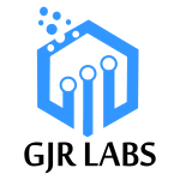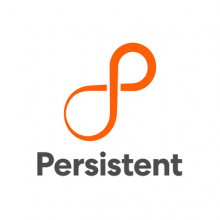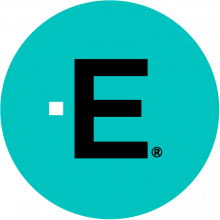
There are 4 Companies in Costa Rica
that provide Go development Services!
Costa Rica is home to almost five million people and an active workforce that puts a great deal of emphasis on education. Costa Rica’s technology exports are high, and hundreds of technology companies have set up offices in the country. In fact, 29 of the Fortune 100 companies have operations in Costa Rica, including Amazon, Intel, Dole, P&G, Hewlett Packard Enterprise, IBM, and many more.
Discover Top IT Companies in Costa Rica specialized in Go and other related services. Find the best IT service providers for your projects.
Go, also known as Golang, is an open-source programming language created by Google. It is designed for simplicity, efficiency, and concurrency, making it a versatile choice for building a wide range of applications, from web services to system software.
Handpicked companies • No obligation to hire • 100% risk-free
Explore Top Go development Companies in Costa Rica

Heredia, Costa Rica Head office in: United States
Doing your software & delivering awesome outcomes.

Persistent Systems Verified Company
San Pedro, Costa Rica Head office in: India
See Beyond, Rise Above

Sapiens Development Verified Company
San Jose, Costa Rica Head office in: United States
Nearshore IT Solutions all over LATAM
Services:
Web3 Builders and Blockchain Infrastructure, for a freer, decentralized internet.
Filter Go development Companies in Costa Rica by Cities
Find the right tech company near you or from a specific city. Some of the best companies might be located in smaller cities.
Find more Go development companies around the world
TechBehemoths is the world's most advanced and user-friendly platform to match IT Companies with real clients without hustle.
The ICT Industry in Costa Rica: General Country Profile
The ICT Industry in Costa Rica: General Country Profile
Costa Rica is home to almost five million people and an active workforce that puts a great deal of emphasis on education. With the lofty goal of becoming a completely bilingual nation in the next decade, Costa Rica is encouraging students to pursue careers in the technology sector – and the results so far are impressive.
Costa Rica’s technology exports are high, and hundreds of technology companies have set up offices in the country. In fact, 29 of the Fortune 100 companies have operations in Costa Rica, including Amazon, Intel, Dole, P&G, Hewlett Packard Enterprise, IBM, and many more.
Why Work With Costa Rican IT Companies
According to the Global Innovation Index 2024, Costa Rica ranks sixth among the 20 economies in Latin America for entrepreneurial activity. Costa Rica is home to a highly educated workforce and attractive incentives for investors.
For these reasons, businesses across a variety of technological sectors, including manufacturing, microchips, life sciences, software, and fintech, are flourishing in Costa Rica.
What to Pay Attention to When Working With Costa Rican IT Companies
On the other hand, there are also challenges when working with Costa Rican IT companies and web agencies. Based on a report of the Canadian Trade Commission, two important issues make it somewhat difficult to work with and in the Costa Rican IT sector:
- Doing business with Costa Rican government companies tends to be slow and bureaucratic due to excessive procedures and slow decision-making.
- The agreement for the promotion and protection of investments of Chinese companies in Costa Rica, signed in 2016, could affect the investments of companies from other countries. This is supported by a Free Trade Agreement, and remains in force to this day.
How Reliable Are Costa Rican IT Companies and Web Agencies
Due to highly skilled professionals, Costa Rican IT companies and web agencies are considered an attractive opportunity for potential foreign clients in Latin America, compared to other countries in the region.
Additionally, IT companies from Costa Rica benefit from a well-developed infrastructure and provide solutions based on the latest technologies, such as AI and Data Analytics.
How Does the Costa Rican IT Infrastructure Relate to the Neighboring Countries?
Compared to the neighboring countries, Costa Rica’s IT infrastructure and industry feel much solid but at the same time bureaucratic and less accessible for the international market. For a country with less than 5 million people and 600+ IT companies operating in the sector, the industry scores a much lower growth rate per year than its capacities, and the reason may be the systematic changes in government policies towards the ICT sector, and preferential foreign agreements with other countries also related to the ICT sector.
What is Go and what are its benefits for your projects?
Go, also known as Golang, is an open-source programming language created by Google. It is designed for simplicity, efficiency, and concurrency, making it a versatile choice for building a wide range of applications, from web services to system software.
More than 363 verified IT companies leverage Go in their development projects. These companies range from startups to tech giants like Google, Uber, and Dropbox. They appreciate Go's speed, reliability, and ease of use for building scalable and performant software.
Go service providers rely on various tools and technologies to enhance their development process. Some commonly used tools include the Go compiler, which transforms Go code into executable binaries, and the Go standard library, which offers essential packages for building applications. In terms of deployment, containerization technologies like Docker are frequently used to package Go applications for consistency and portability.
You may be wondering, how is Go Different from C, Rust, and Java. So, below we’ll try to show you more about the differences that exist between them:
-
Go vs. C: While both Go and C are low-level languages, Go offers modern features like garbage collection and memory safety, which simplify programming. Go is also more concise and expressive than C, making it easier to read and maintain. But if you think your business needs companies that also specialize in C, you can find them on this page
-
Go vs. Rust: Rust emphasizes memory safety and control without sacrificing performance. While Go offers simplicity and readability, Rust provides fine-grained control over memory and is suitable for systems programming with a focus on safety.
-
Go vs. Java: Java is a high-level language often used for building enterprise-level applications. It relies on a virtual machine (JVM) and is known for platform independence. Go, on the other hand, compiles native code, offering better performance and efficiency for certain use cases.
Languages related to Go in terms of use cases and features include Python, Ruby, and Node.js. These languages, like Go, are suitable for building web services and backend applications and are known for their developer-friendly features. If you need these programming languages in addition or instead of Go, just click on their corresponding words above to find verified vendors providing those services.
When selecting IT companies that use Go for your project, consider factors such as the company's experience with Go, their portfolio of past projects, client references, and their understanding of your specific project requirements. Look for companies that align with your project's complexity, scalability needs, and budget.
Go service providers are essential for various project types, including:
-
Web Services: Go is well-suited for building RESTful APIs and microservices due to its excellent performance and simplicity.
-
Networking Applications: Go's concurrency support makes it ideal for developing network-related software such as servers and proxies.
-
Cloud Applications: Go's efficiency and speed are valuable for building cloud-native applications and serverless functions.
-
System Software: Go can be used for developing system utilities, command-line tools, and operating system components.
Go is a versatile language, and its speed, simplicity, and efficient concurrency model make it suitable for a wide range of projects, making it an excellent choice for modern software development.
